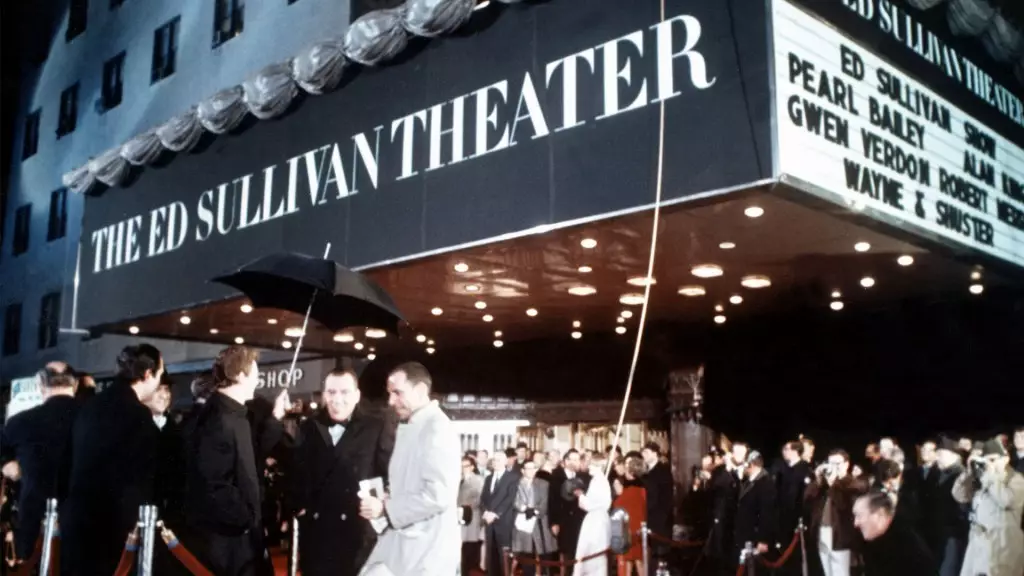Vince Calandra’s career embodies the transformative power of behind-the-scenes influence in the entertainment industry. Unlike headline-grabbing celebrities, Calandra’s role was pivotal in bridging talents with millions of viewers and, perhaps more importantly, in shaping the cultural zeitgeist of the 1960s and beyond. His story is a testament to the profound impact a dedicated and perceptive talent booker can have on history, especially when that influence intersects with seismic shifts in music and pop culture.
From humble beginnings in Brooklyn to becoming a linchpin in one of television’s most iconic eras, Calandra’s rise underscores how passion and persistence open doors to extraordinary opportunities. At just 23, he was entrusted with the monumental task of ushering The Beatles onto American television—a moment that rewrote the boundaries of cultural exchange. His work extended well beyond this, involving delicate negotiations with rebellious rock icons and navigating the complex choreography of live television. These actions reveal a man not merely executing orders but actively shaping moments that would resonate for generations.
From Mailroom to Mastermind: A Life Dedicated to Entertainment
Calandra’s trajectory demonstrates that success often stems from a combination of talent, timing, and unwavering commitment. Starting in the mailroom, he proved that attentive dedication can elevate an individual to positions of real influence. His evolution from holding cue cards to becoming the talent booker underscores an intimate understanding of the entertainment industry—knowing when to push, when to compromise, and when to stand firm.
His appointment as the primary architect behind The Beatles’ historic television debut exemplifies this. The February 9, 1964, performance was not merely a television event but a cultural catalyst that materialized the British Invasion firsthand. His behind-the-scenes involvement, from rehearsing with a mop-top wig to managing the enthusiastic chaos of screaming fans, illustrates how integral he was to orchestrating these moments under intense pressure. Calandra’s ability to manage such high-stakes live events with finesse contributed significantly to elevating the show’s and the artists’ legacies.
Negotiating Controversy and Challenging Authority
One of Calandra’s most remarkable strengths was his capacity to handle adversity and controversy with pragmatism. The infamous lyric modifications with The Rolling Stones and The Doors demonstrate his diplomatic tact in managing artist-label relationships and broadcast standards. His role in persuading Jim Morrison to alter “Girl we couldn’t get much higher” to “Girl we couldn’t get much better” exemplifies his strategic thinking and negotiation skills.
However, these incidents also reflect a broader tension between artistic integrity and commercial or regulatory interests. Calandra’s decisions highlight the balancing act he had to perform—protecting the show’s integrity without alienating provocative artists. His involvement in these critical moments underscores how much subtle influence a talented booker wielded in shaping the musical landscape of the era.
Legacy of a Cultural Gatekeeper
Beyond his work with The Beatles, Calandra’s intimate contact with a wide array of legendary talents from Frank Sinatra to Jim Henson signifies his role as a versatile gatekeeper of American entertainment. His later work on talk shows expanded his influence, providing platforms for voices that continue to shape cultural dialogues.
Calandra’s legacy is rooted in his unassuming genius—an ability to recognize moments of cultural significance and ensure they are captured on a national stage. While he avoided public adulation, his behind-the-scenes expertise helped craft some of the most iconic television moments of the 20th century, cementing his place in entertainment history.
Reflecting on Calandra’s life invites us to reconsider the importance of the often-overlooked architects of culture: those who work tirelessly in silence, orchestrating events that define generations. His story exemplifies that true influence is often measured not by fame but by the lasting impact of one’s contributions, shaping the stories we tell ourselves about music, history, and the power of television to unite a nation.
